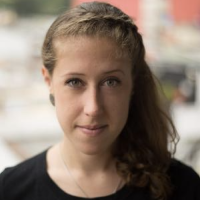OxPol Blogcast showcases research, analysis, insights, and experiences from the members of the University of Oxford’s Department of Politics and International Relations (DPIR), and specialist guests from the Oxford academic community and beyond.
On this episode, we are focusing on the state of women’s descriptive and symbolic representation in party and civil society politics across Latin American countries.
OxPol Blogcast host Anastasia Bektimirova welcomes three guests to bring you the stories of women’s agency at different levels of political participation in the region. The guests are sharing their expert view on the social environment, political culture, policies as well as written and unwritten rules that are shaping women’s progress and experiences in pursuing elected office, and engaging politically from civil society.
With Dr. Malu Gatto, an Associate Professor of Latin American Politics at the Institute of the Americas at University College London (UCL), we are zooming into gender quotas, a policy that is supposed to assist in achieving a greater balance in legislatures. Malu helps us understand why in some Latin American countries gender quotas are implemented more effectively than in others, and what the so-called informal political institutions have to do with this. Malu is drawing on the insights from her co-authored article published in Party Politics.
With Dr. Anna Petherick, an Associate Professor in Public Policy and Director of the Lemann Foundation Programme for the Public Sector at the Blavatnik School of Government at the University of Oxford, we are focusing on corruption as a barrier to women’s political representation. Anna takes a comparative approach, allowing us to place the observations from Latin America into a broader perspective. You can further consult Anna’s report on the gender dimensions of corruption prepared for the United Nations Office on Drugs and Crime.
With Dr. Julia Zulver, a Marie Skłodowska-Curie Research Fellow at the Oxford School of Global and Area Studies at the University of Oxford and UNAM in Mexico, we are turning to civil society politics. We are discussing how the challenges and risks associated with this form of political participation compare to those facing the traditional political elite. Later on, we are covering the rise to power of Francia Márquez, a recently elected Vice President in Colombia, to illustrate a path from civil society activism to elected office. Julia is drawing on her new book High-Risk Feminism in Colombia: Women’s Mobilization in Violent Contexts.
This episode is part of the series Women in Politics: Perspectives from the Field and Academia which explores a feminist turn in Political Science and International Relations research, and tries to better understand women’s experiences in politics.
Listen on:










